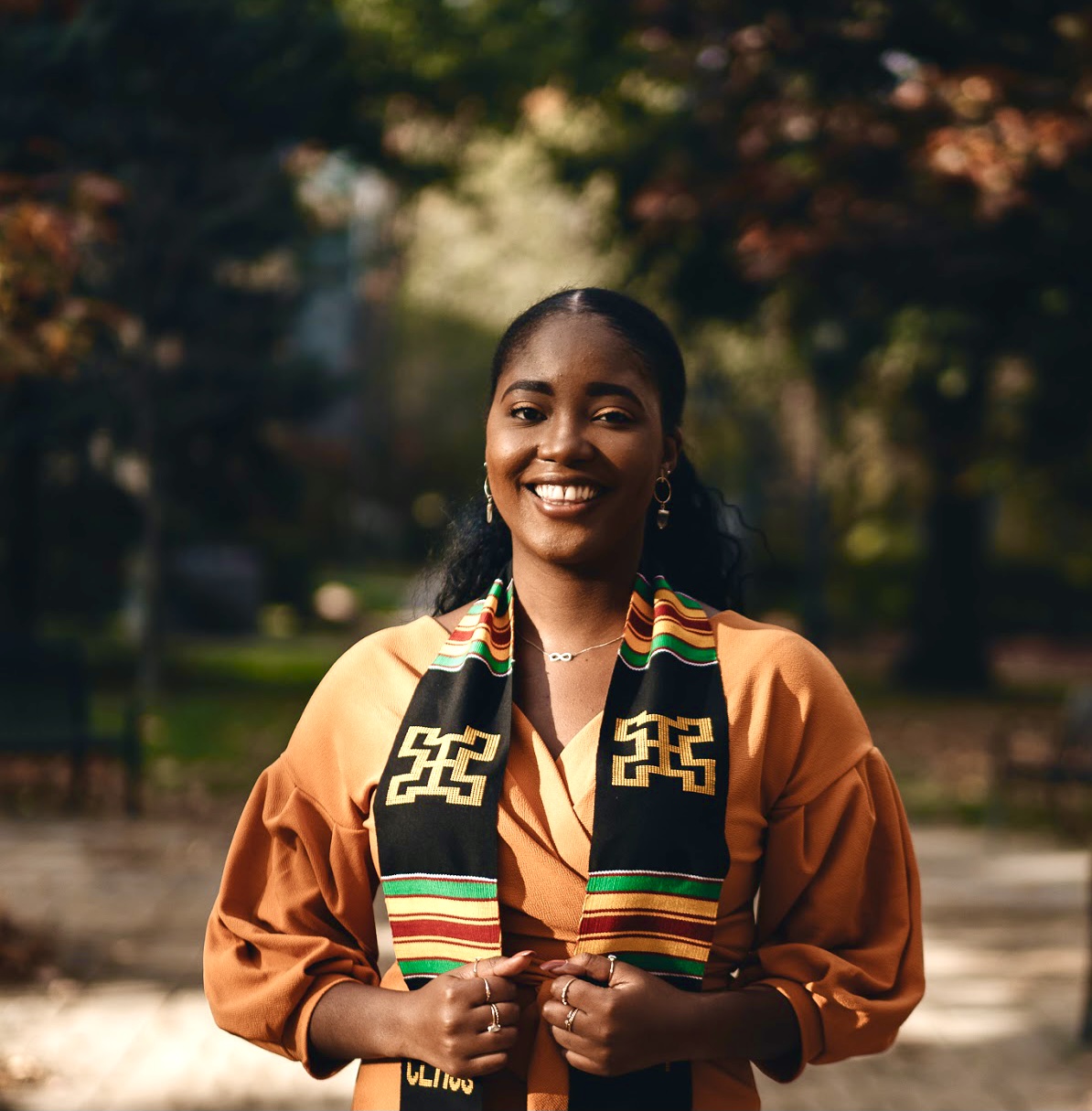
Master of Global Affairs program sets job placement record despite pandemic
Childhood curiosity about the origins of her food eventually led Mycala Gill to become a vegetarian. It also fostered a passionate interest in food security, which Gill is pursuing through her summer internship for the Master of Global Affairs (MGA) program at the Munk School of Global Affairs & Public Policy.
“As I learned more about the contributions to world hunger and the lack of food security that exists across the globe, I became more and more intrigued as to how I could get involved in finding a solution – as my individual action of not eating meat is just one small step,” Gill says.
Gill is putting her passion to work with the Peru office of Action Against Hunger, an international organization that fights against hunger and its root causes worldwide.
“This organization was my top choice for an internship,” Gill says. “They are promoting food security in developing countries, which is something I’ve always wanted to do.”
The necessity of working with colleagues in Spanish is forcing her to polish her language skills, and “the research tools and projects I’m being exposed to have opened my eyes to what field research looks like,” she says.
“In the classroom, it can be hard to visualize what a concept looks like in practice, so it’s a nice shift to work with an organization that is hands-on in the community. It’s eye-opening.”
Internships are required for MGA students during the summer between the first and second years of the program and they provide a wonderful opportunity to explore personal interests while building resumes.
 Simon Malevich, an MGA alumnus and naval reservist interested in global security, spent his summer working for the Coalition against Daesh within the Foreign, Commonwealth and Development Office in London.
Simon Malevich, an MGA alumnus and naval reservist interested in global security, spent his summer working for the Coalition against Daesh within the Foreign, Commonwealth and Development Office in London.
“We worked with 80 different partners, both sovereign nations and multi-lateral institutions,” says Malevich, who now works for a firm that focuses on international security. “It was a fantastic experience all around, and, as the Munk School emphasized, I learned to build my personal network, which led to the job I currently have.”
In fact, despite the disruption caused by the COVID-19 pandemic, 100 per cent of the MGA’s eligible students are engaged in summer internships with external partners, placements that were solidified earlier in 2021 than in other years. Heather Bruce, the MGA’s co-ordinator of global internships, notes that the number of international placements for the students this year are almost on par with non-pandemic years, even though students can’t travel to those locations.
“The students are still getting to work with partners in an international context on global issues, but because everything is remote this year, students have increased access without worrying about the challenges of moving,” Bruce says. “It opened up opportunities that might not have been there before. Some organizations might not have recruited from the Munk School based on its location, but now, the world is our oyster.”
Shiri Breznitz, director of the MGA program, says the quality of the internships the students undertake is also remarkable.
“The ability to place students in internships that are meaningful is as important as ensuring that 100 per cent are placed,” Breznitz says.
“The MGA program is built on five pillars: Justice and Human Rights, Security, Markets, Development and Innovation Policy. By the end of the first year, the students have learned about all five and know what specialties interest them. We try to get them placed in those internship fields, because this is the first step toward the professional side of the degree.
“The clients [government agencies, private sector firms, NGOs, etc.] recognize what our students have to offer, which affects our placement success.”
The program’s job placement success is also worth celebrating. By mid-May, 44 per cent of the MGA graduating students had accepted offers of employment, the highest rate of employment prior to graduation that the program has ever seen.
“This is extraordinary given the challenges of shifting to an online/virtual space for job search during the pandemic,” says Sole Fernandez, the program’s professional development and alumni relations co-ordinator.
Saad Iqbal received his offer of employment from Infrastructure Canada on his last day of classes and began working virtually in May. He is part of a new Integrated Regional Planning team at the ministry which manages investments in sustainable mobility, such as urban transit, active transit and zero-emissions fleets.
“It’s a really exciting time to be here,” he says. “It’s a small team, so we’re not siloed; we’re all working on everything.”
He finds his Munk School experience very helpful as he digs into his new position.
“It’s great to see some of the practical applications of the work we did at the Munk School. And the MGA focus on teamwork has also been very helpful,” Iqbal says. “The last year of studying virtually really set me up to hit the ground running in a virtual work environment.”
Iqbal says. “The last year of studying virtually really set me up to hit the ground running in a virtual work environment.”
The excellence of MGA students is what keeps internship partners coming back year after year, Bruce says. “In fact, this year, we had more opportunities available than students to fill them.”
The internship opportunities are also something that attracts students to the program; the support they receive in the job hunt is an added bonus.
“This internship confirms that the MGA program is equipping me with the skills to take on the global development field,” says Tabitha Oni, who is working virtually for the World Bank this summer.
The MGA program’s popularity with employers is a testament to stellar students and a quality program and a feather in the MGA’s cap.

